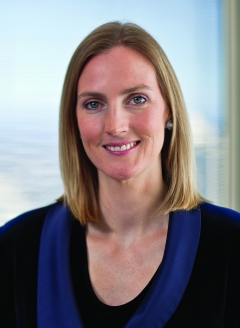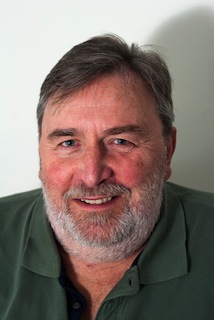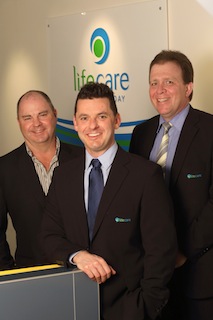Featured News
Newsroom
- Details
- In Pottinger
- /
 Pottinger Joint CEO Cassandra Kelly has called on board quotas for women so Australia can embrace diversity and boost productivity to deal with its current economic challenges.
Pottinger Joint CEO Cassandra Kelly has called on board quotas for women so Australia can embrace diversity and boost productivity to deal with its current economic challenges.
In an address to a Committee for Economic Development of Australia (CEDA) conference last week, Ms. Kelly said Australia needed to focus on more than primary resources to underpin its long-term economic and social prosperity. Other pillars of strength could include financial services, agriculture, education, inbound tourism, and innovation and technology.
- Details
- In Denise Goodfellow
- /
 World-famous birdwatcher, Bo Beolens, aka the Fat Birder, will call for more accessible nature reserves when he presents via podcast at a Darwin workshop that aims to improve wildlife tourism in the NT.
World-famous birdwatcher, Bo Beolens, aka the Fat Birder, will call for more accessible nature reserves when he presents via podcast at a Darwin workshop that aims to improve wildlife tourism in the NT.
The British birder is renowned for championing the challenges faced by disabled birdwatchers and others who try to find a suitable birding tour or access a nature reserve.
Mr. Beolens, who suffers from Ankylosing Spondylitis, a crippling arthritis of the spine, said nature reserves and birding trips offered few concessions to the average person, let alone those with restrictions on their mobility. “It occurred to me this is because the majority of (those in the business) are six-feet tall, fit and able young men,” he said.
“I always liken such provision to the shoe trade. If the only shoes made were size 10 all-weather boots, those wanting size five pink stilettos would be sadly disappointed. Most of us are not fit and able six-footers, so viewing slots need to be at variable heights; not everyone can walk a mile non-stop so we, just like the birds need a perch every 150 yards or so.
“I wanted nature to be more accessible. I wanted the designers to go back to the drawing board and make sure that the provisions they make for human access more friendly to all.”
Organised by Wildlife Tourism Australia and to be opened by NT Administrator the Honourable Sally Thomas AM, the October 2-4 workshop will examine the problems, potential and possibilities of connecting wildlife and visitors in the Top End.
- Details
- In Innovation
- /
 Adelaide student Eden Harris has topped her 2012 tally by raising $1250 to assist people in the developing world through giving up food and furniture during World Visiion's 40 Hour Famine
Adelaide student Eden Harris has topped her 2012 tally by raising $1250 to assist people in the developing world through giving up food and furniture during World Visiion's 40 Hour Famine
Last year, in her first 40 Hour Famine, Eden, who was then just 13 years old, was able to raise $940 for projects that help hungry kids and families around the world.
Eden said she was enormously grateful all to those people who had generously donated to support her during the famine. "For me, it shows that working together, we really can make the world a better place," she said.
This year, all funds raised will go to support projects that fight hunger in Malawi, Ethiopia, East Timor, Nepal, Tanzania, and Uganda. Initiatives include helping families gain better access to food and clean water, give people the chance to increase their incomes through training and micro-finance, and help farmers get the tools and training they need to grow more food. Funds raised in the 40 Hour Famine also help World Vision respond to emergencies around the world.
Until the end of September, you can still sponsor Eden through her 40 Hour Famine profile page at http://www.worldvision.com.au/40HF/ProfilePage.aspx?preferredurl=Edenharris If you have any problems with that link, Eden's Famine ID number is 2013005995. If you/re not able to sponsor her financially, Eden will appreciate encouraging messages on her webpage for the site
Eden's school, Temple Christian College, held its 40-Hour Famine on Wednesday and Thursday (August 21 and 22) this week.
- Details
- In MIMP
- /
 When leading South Australian aged care provider Life Care recognised its Wide Area Network design was holding back progress, preventing deployment of its new care planning software system, it turned to MIMP connecting solutions for an answer.
When leading South Australian aged care provider Life Care recognised its Wide Area Network design was holding back progress, preventing deployment of its new care planning software system, it turned to MIMP connecting solutions for an answer.
During 2012, MIMP connecting solutions deployed a full-duplex licensed wireless network, running as fast as 100 megabits per second, to connect Life Care’s corporate head office in North Adelaide with its five aged care facilities in the eastern and southern suburbs of Adelaide, one as far as 50km away.
More News...
- Melba leads in tailored care with EBS & NAV (09 September 2013)
- Pottinger's vote of faith in post-election rebound (04 September 2013)
- MIMP scores NECA award hat trick (24 August 2013)
- Wireless leader MIMP fights SA Govt microwave slug (20 August 2013)
- Eden aims to top 40 Hour Famine 2012 tally (19 August 2013)
- Museum ‘ropes in’ maritime trades for tall ships event (16 August 2013)
- Wildlife Tourism the topic of Top End workshop (16 August 2013)
- EBS nabs defence firm DMTC with Microsoft Dynamics NAV (13 August 2013)
- IT Pros urge Microsoft to save TechNet (12 August 2013)
- EBS wins Australian Drug Foundation with NAV (27 June 2013)
Off the Cuff

Simon Hackett speaks about Formula E racing on ABC Radio Adelaide
Australian renewable energy investor Simon Hackett last week spoke to Radio ABC Adelaide's Afternoons host Sonya Feldhoff about the benefits for replacing the cancelled Adelaide 500 motor race with a...
Read more
Seven simple steps for mental health in time of coronavirus
After the summer bushfires, the coronavirus pandemic and associated economic shutdown, “unprecedented” must be a standout favourite for Macquarie Dictionary’s Word of the Year for 2020. For the first time...
Read more
John Harris talks (a bit) about International Albinism Awareness Day on ABC Radio
John Harris, who has the honorary role of PR guy for the Albinism Fellowship of Australia, was interviewed by Peter Goers on the Evenings show of ABC Radio Adelaide on...
Read more
Start-ups are key to the future of everything
Nigel Lake, Executive Chair of global business advisory firm Pottinger, will tell this week's Myriad start-ups festival in Brisbane, running May 16-19, that Australia needs start-ups to protect its prosperity. Pottinger...
Read moreContact
Impress Media Australia
P: +61 8 8431 4000
E: john@impress.com.au
W: www.impress.com.au
Street:
Impress Media Australia
313 Portrush Road,
Norwood SA 5067
Click here for our location
Postal:
Impress Media Australia
Box 95, Kensington Park
South Australia 5068







